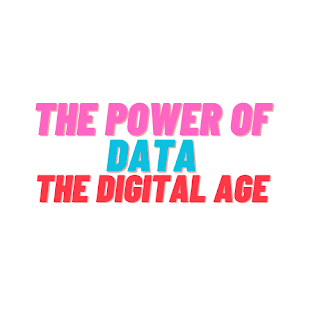Dive into the world of data with our comprehensive guide. Discover the importance of data in various domains, explore its potential applications, and learn how to harness its power effectively. Gain insights into data-driven decision making and unlock the key to success in the digital era.
Introduction to Data: The Backbone of the Digital Age
In the digital era, data has emerged as the driving force behind innovation, decision-making, and transformative advancements. This comprehensive guide aims to explore the significance of data, its potential applications across domains, and the strategies to effectively harness its power.
The Importance of Data:
Data forms the foundation of knowledge and insights in the modern world. It enables informed decision-making, facilitates problem-solving, and empowers organizations to optimize processes, improve efficiency, and drive innovation. Understanding the importance of data is crucial for leveraging its full potential.
Types of Data:
a. Structured Data: Organized and easily searchable data stored in predefined formats, such as databases and spreadsheets.
b. Unstructured Data: Information that lacks a specific format or organization, such as social media posts, emails, and multimedia content.
c. Semi-structured Data: Data that possesses some organization but does not fit neatly into predefined structures, such as XML files and log files.
d. Big Data: Vast volumes of data that are generated at high velocity, in various formats, and require advanced processing techniques for analysis.
Data Collection and Management:
a. Data Collection Methods: Explore techniques such as surveys, interviews, observations, and automated data collection to gather valuable information.
b. Data Quality: Ensure data accuracy, completeness, consistency, and relevance through proper validation and cleansing processes.
c. Data Storage and Retrieval: Implement robust data management systems, including databases, data warehouses, and data lakes, to efficiently store and retrieve information.
d. Data Governance: Establish policies, procedures, and frameworks to ensure data integrity, security, and compliance with regulations.
Data Analysis and Insights:
a. Data Analysis Techniques: Discover statistical methods, data mining, machine learning, and artificial intelligence algorithms to extract meaningful patterns and insights from data.
b. Data Visualization: Utilize charts, graphs, and visual representations to communicate complex data in a comprehensible and insightful manner.
c. Predictive Analytics: Leverage historical data and statistical modeling to forecast future trends, outcomes, and make data-driven predictions.
d. Prescriptive Analytics: Utilize advanced analytics to provide recommendations, optimize decision-making processes, and suggest actions based on data insights.
Data Applications in Various Domains:
a. Business and Marketing: Harness customer data to understand preferences, tailor marketing strategies, and drive personalized experiences. Analyze market trends, competitors, and consumer behavior to make data-driven business decisions.
b. Healthcare and Medicine: Utilize patient data for diagnostics, treatment optimization, disease surveillance, and drug development. Enhance patient outcomes and improve healthcare delivery through data-driven insights.
c. Finance and Banking: Analyze financial data to detect fraudulent activities, assess credit risks, and optimize investment strategies. Utilize data-driven algorithms for automated trading and portfolio management.
d. Manufacturing and Supply Chain: Optimize production processes, inventory management, and supply chain operations through real-time data monitoring and analysis. Improve efficiency, reduce costs, and enhance quality control.
e. Education and Research: Utilize data to assess student performance, personalize learning experiences, and identify areas of improvement. Support research endeavors by analyzing vast datasets and identifying patterns and correlations.
Data-Driven Decision Making:
a. The Role of Data in Decision Making: Understand how data-driven insights can enhance decision-making processes by reducing uncertainty, providing evidence-based justifications, and identifying opportunities.
b. Challenges and Limitations: Explore challenges such as data quality issues, privacy concerns, and biases that can impact data-driven decision-making outcomes. Implement strategies to mitigate these challenges effectively.
c. Cultivating a Data-Driven Culture: Foster a data-driven mindset within organizations by promoting data literacy, encouraging data-driven thinking, and providing necessary training and resources.
Data has transformed the way we live, work, and interact with the world. Its significance spans across industries and domains, enabling organizations and individuals to make informed decisions, drive innovation, and unlock new opportunities. By understanding the importance of data, adopting effective data management practices, and utilizing data-driven insights, we can harness its power to create a better future in the digital age. Embrace the potential of data and embark on a journey of transformative possibilities.
 Reviewed by Smart Info
on
June 25, 2023
Rating:
Reviewed by Smart Info
on
June 25, 2023
Rating:









No comments: